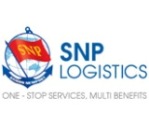The European Union and Canada are on the verge of signing an open skies agreement, which will replace existing bilateral agreements between Canada and a number of individual EU states.
The agreement will give additional freedoms to airlines - including access to new markets and full pricing freedom - as well as an improved way of regulating the industry. An increase in direct flights between the EU and Canada is also expected, as well as more competition and lower prices.
The agreement will enable any "community air carrier" to fly between any point in the EU to any point in Canada, without any restrictions on the number of flights.
It will also gives airline the right to enter into code-share arrangements with other airlines, without restrictions to establish their tariffs in line with competition law.
The agreement will contain provisions for the phased market opening linked to the granting of greater investment freedoms by both sides:
Phase one applies where the foreign ownership of airlines is limited to 25%; airlines have unlimited freedom to operate direct services between any point in Europe and any point in Canada; there will be no limitation on the number of airlines flying between the EU and Canada, or on the number of services operated by any airline; cargo airlines will have the right to fly onward to third countries.
Phase two starts once Canada has taken the steps necessary to enable European investors to own up to 49% of a Canadian carriers' voting equity - something Canada already introduced in March 2009, which means that the rights associated with phase two of the agreement may be applied from the start. This means certain additional rights, including the right for cargo operators to provide services to third countries from the other party to third countries without connection to their point of origin (7th freedom rights) will be available.
Phase three begins once both sides enable investors to set up and control new airlines in each others' markets. Passenger airlines will then be able to fly onward to third countries.
Phase four is the final step with full rights to operate between, within and beyond both markets, including between points in the territory of the other party (cabotage). It will be granted once both sides have completed steps to allow full ownership and control of their carriers by the others' nationals.
Despite a close network of bilateral aviation arrangements, eight Member States currently do not have an agreement with Canada. Furthermore, many existing agreements do not offer full access to the respective markets, and some restrict the number of weekly flights. Existing bilateral agreements between Member States and Canada will be replaced by the EU agreement.
Eyefortransport




.jpg)








